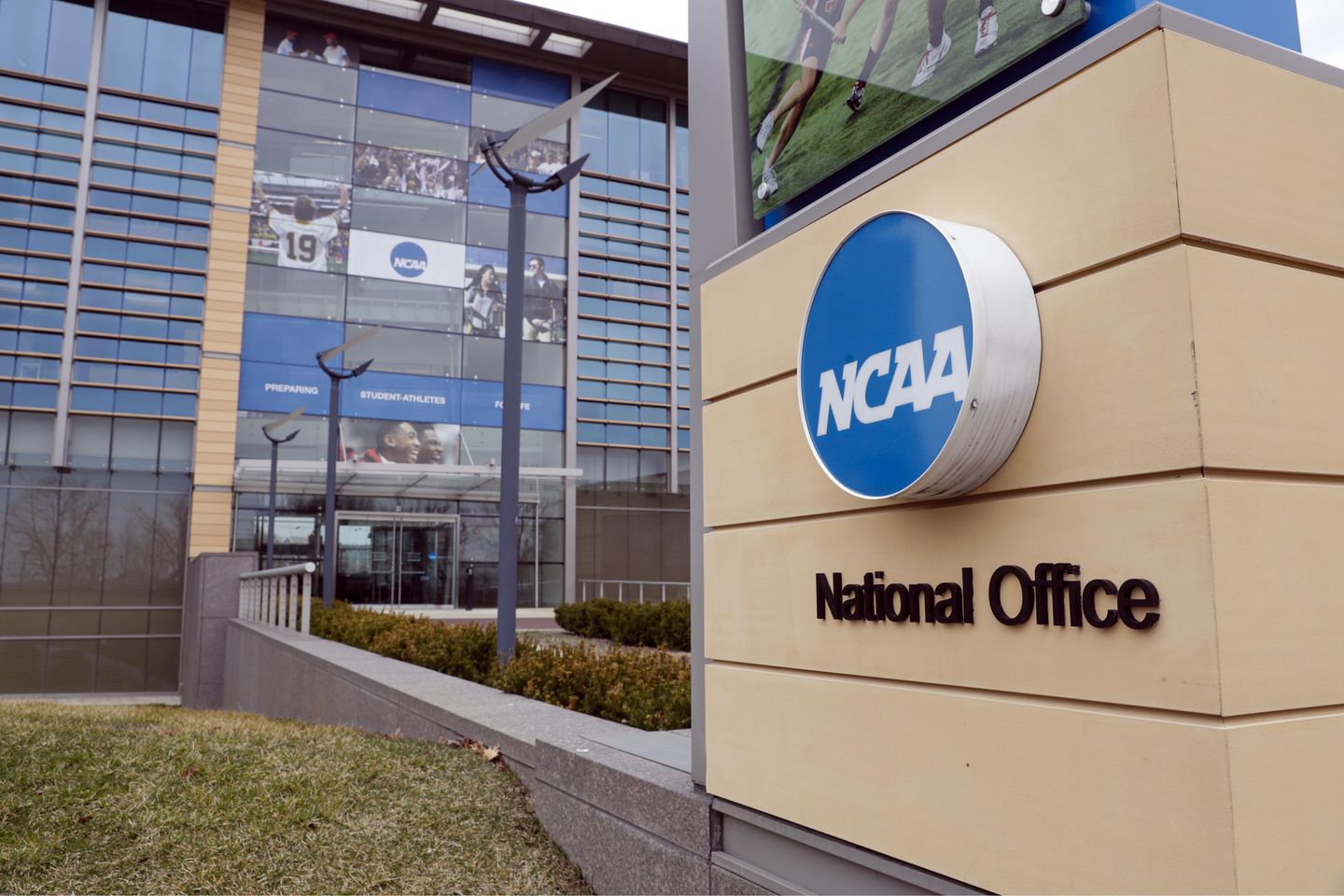
President Trump is weighing an executive order that would introduce policies to “save college sports” in the wake of unregulated endorsement deals for student-athletes, according to multiple reports on Thursday.
The name, image and likeness landscape has run relatively unchecked since 2021, when a Supreme Court ruling opened the door for student-athletes to profit from endorsements and advertising deals.
Several states have adopted individual laws, but there has been no framework from federal legislators to control the deals, which can attract millions of dollars for the top student-athletes.
The draft of Mr. Trump’s executive order featured a three-pronged approach to regulating the college sports landscape, according to several reports.
The president noted in the draft that NCAA leadership and other organizing bodies should be exempted from antitrust laws.
The order also demands that “unqualified and unscrupulous agents” should be barred from representing student-athletes.
The executive order also expressed a desire for federal uniformity for name, image and likeness laws.
Court rulings have “eliminated limits on athlete compensation, recruiting inducements, and transfers between universities, unleashing a sea change that threatens the viability of college sports,” the draft version of the executive order said, per reports. “It is the policy of my Administration that college sports should be preserved.”
The new reality of college athletics has created whiplash for many fans, coaches and administrators after decades of amateurism.
College athletes can transfer at will if they aren’t making enough money at a given school. Booster programs at athletic powerhouses are enticing top prospects and transfers with lucrative deals.
Meanwhile, smaller “Olympic” sports like swimming, golf and track, are being left behind.
Long-time coaches like Alabama football’s Nick Saban and Duke basketball’s Mike Krzyzewski cited the influx of money as a key factor in their recent retirements.
“Players need to get compensated, no doubt. But it has to be done in a way where, you know, in some kind of way, have competitive balance, you know, and that every school has the same thing,” Mr. Saban said on “The Pat McAfee Show” in January.
“One school can’t spend $30 million for players while another school’s spending $3 million,” he said.
Athletic directors and NCAA officials have spent the last few years pleading for help from the federal government.
“We continue to see evidence of dysfunction in today’s NIL environment, including examples of promises made but not kept to student-athletes,” NCAA President Charlie Baker said in September. “We’re continuing to advocate for Congress to create national NIL guidelines that will protect student-athletes from exploitation, including the use of standard contracts.”
Federal intervention began heating up in the last month after a judge approved the House v. NCAA settlement.
The deal ended three antitrust lawsuits against college athletics’ ruling body and paved the way for schools to start paying student-athletes directly.
College administrators like SEC Commissioner Greg Sankey — who recently visited Mr. Trump — said this week that they were unaware of the president’s planned executive order.
“The president is going to do what he wants to do,” Mr. Sankey told USA Today. “I’ve read things on social media, but I also read that there would be a presidential commission. So the question with an executive order is if [Trump] does, and then what it is, and then we’ll go from there.”
For now, the administrators are focused on federal legislation over presidential lobbying.
“We’ve been in active conversations,” Mr. Sankey told ESPN on Wednesday. “And I talked to members of Congress yesterday as they look at a bill in the House of Representatives, went through a subcommittee markup, this is all the gobbledygook. I think those congressional activities are still a real priority for us.”
The latest effort to legislate college sports, the SCORE Act, was introduced in the House last week with bipartisan support.
The bill includes the three elements the NCAA has lobbied for: antitrust protections, preemption of state laws that regulate name, image, likeness payments, and a section that prevents athletes from becoming employees of their schools.
The legislation’s main goal is to set national standards for NIL payments in the wake of the approval of a $2.78 billion lawsuit settlement that allows schools to pay athletes.
Still, some supporters of student-athletes are questioning the need for government intervention.
They’re concerned that the introduced legislation and proposed executive order tip the balance of power away from student-athletes, limiting their earning potential.
“Plain and simple, college athletes don’t need Trump’s help, and he shouldn’t be aiding the NCAA at the expense of athletes,” Steve Berman, one of the plaintiffs’ attorneys in the House v. NCAA case, said in a statement to Yahoo Sports. “Step back, Mr. President. These fabulous athletes don’t need your help. Let them make their own deals.”
Senate Democrats took a similar view of the SCORE Act. The legislation will need “yes” votes from at least seven Democrats to pass through the Senate.
It seems like a long shot.
“If you thought the dissolution of the Pac-12 was a heist, the SCORE Act is the National Championship of all heists,” Sen. Maria Cantwell, Washington Democrat, wrote this week. “This legislation is a power grab by the two biggest conferences that will leave athletes, coaches, and small and mid-sized institutions behind.”
It is unclear when the president plans to finalize and sign his executive order. The proposal would require policy adjustments by the Federal Trade Commission and Attorney General Pam Bondi’s office within 60 days, though.








